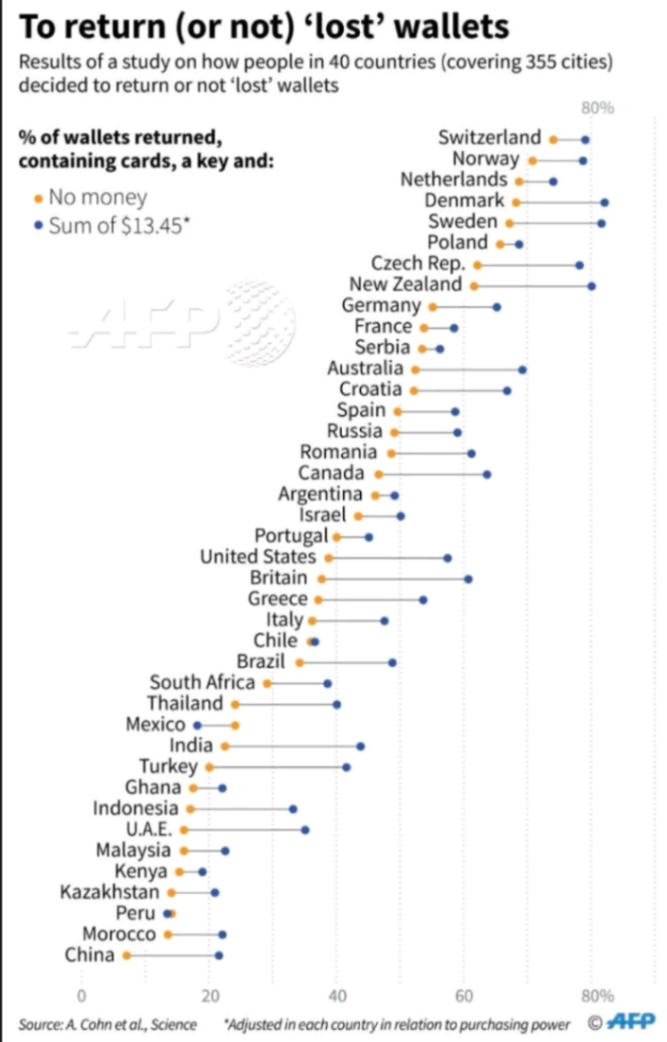Would you return a lost wallet? Most people say yes. But what happens when no one is watching? In one of the most fascinating behavioural studies of recent years, economist and behavioural scientist Alain Cohn and his team at the University of Michigan tested just that, in real life. They “lost” over 17,000 wallets in 40 countries, discreetly placing them in banks, post offices, and public buildings, and quietly observing what people would do. Each wallet contained a shopping list, a key, a business card, and, in some cases, money. The researchers expected what many of us assume: The more money inside, the less likely people are to return it. But the results told a very different story. - The more money in the wallet, the more likely it is to be returned. - When wallets were empty, about 40% came back. - When they contained $13, returns rose to 51%. - When wallets held $94, the return rate reached over 70%. The finding held across continents, cultures, and income levels. It turns out that the more people felt their decision mattered, the more visible the harm of keeping what wasn’t theirs, the stronger their impulse to do the right thing. Why? Because most of us want to see ourselves, and be seen, as decent, honest people. We’re wired not just for self-interest, but for self-congruence: the need to live in alignment with the kind of person we believe we are. This is where psychology and sociology meet: Psychologically, we avoid the discomfort of betraying our internal moral compass. Sociologically, we’re shaped by the invisible threads of norms, decency, and mutual trust. But here’s the deeper invitation: Suppose you believe that your actions have an impact. If you can leave a room, a moment, or even a city street a little better than you found it, then every small choice becomes a quiet act of leadership. Returning a wallet, offering a hand, or taking a breath before reacting are not just individual decisions. - They are cultural signals. - They say: This is the kind of place we are building here. - One where integrity isn’t performative, but practised, especially when no one is watching. Cohn’s study offers an encouraging reminder: Most people will do the right thing when they feel it matters. Let’s keep making it matter.
The more money in the lost wallet - the more the return percentage
💯👍2

Comments (2)
Interesting outlier: Peru
Tigra несерьёзная разница.